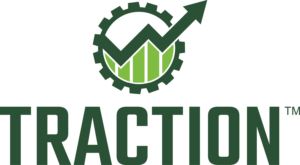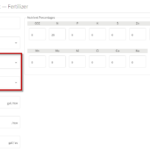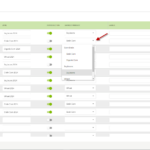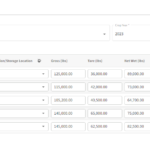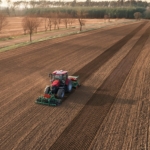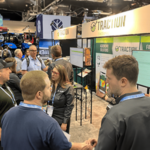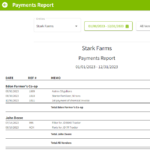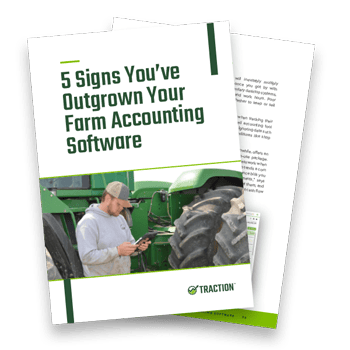High Emphasis on Farm data

It’s been said knowledge is power and that is especially true for farmers. On any given day, farmers make a number of decisions – some big, some small. Every decision a farmer makes has an impact on the farming operation, which is why making informed decisions is critical. When it comes to making those decisions, farm data is king and good data management is paramount.
“Frankly, the last few years we’ve had a more difficult farm economy with six or seven years of low margin operations,” says Paul Gorman, owner of ELCEL Solutions Inc. and a long-time farm business management instructor.
With extreme market swings, rising input costs and severe drought impacting much of the country, having sound financial management practices is pivotal, perhaps more today than ever before. “People cannot afford to be sloppy,” Gorman says.
That’s where a powerful farm data management software program is helpful. Computerized farm management software has been around for decades. These programs have enabled farmers to make informed decisions, allowing them to be more efficient and make decisions based on accurate information.
“[Farm management software] definitely gives you a truer picture,” explains Mitch Konen. “Instead of by guess, by golly-type numbers, it gives you accurate, true numbers of what’s going on out there in the field.”
Konen, a third-generation farmer near Fairfield, Mont., started using farm management software after returning to the family farm in the early ‘90s. With the program, he could print reports, including income statements and balance sheets, for his accountant or banker, having all the information readily available on one platform. Unlike his counterparts who used other programs or were using spreadsheets, “I didn’t have to bounce between spreadsheets or programs or anything like that, because it was all integrated into one program; farm records, accounting, inventory, budget, everything was all tied together.”
Last year, Konen transitioned his farm data management to a new cloud-based software, Traction. Although it’s a relatively new program, Traction is revolutionizing farm data management.
Analyze Field Profitability
The power of Traction Farm Accounting starts with allowing farmers to manage their true financial numbers and tie them back to their fields.
“Being able to integrate production and financials and get the cost of a rented piece of land where they get the interplay of land rent cost versus yield — is a big deal,” Gorman says. “People can’t afford to be renting land that isn’t covering the rent.”
As payment and deposit transactions are entered in Traction, farmers have field profit center analysis at their fingertips to track real-time profitability.
“Because all costs are accounted for and all of the sales of that crop [are too], all the profitability or non-profitability of different pieces of ground shine through pretty well; where you’re making your money and where you aren’t,” Konen says.

For Konen, having a powerful farm accounting program is a priority, because it gives him a clear picture of the farm’s financial standing. “Maybe you can change your practice and change the profitability or reduce the loss on those acres,” he says. “A lot of times, it’s not just making a profit, it’s also reducing costs. Saving money is just as important.
“Having all that [information] readily available within an accounting program, split out in as much detail as you can get, shows you exactly which costs you can reduce to get to a better position,” Konen adds.
Make Informed Decisions

For Laryce Schwieterman, who runs a seed wheat business and farms with her husband near Syracuse, Kan., using farm management software allows her family to avoid the emotional decision trap and place more confidence in a profit-focused farm business.
“You need true figures to be able to make true business decisions,” she says. One area that farm management software is important for Schwieterman is determining what to charge customers for seed wheat.
“Well, what did it cost us to raise it? And what are all the added costs to get it to certification so we can sell it to others? It needs to be drilled down to a crop by crop and field by field basis,” she says. “If we think we have $7 in a bushel of wheat to produce it but find out we really had $9 and we sold it for $8.50, we’re losing money and that doesn’t work,” she adds.
Using Traction, Schwieterman can easily determine the breakeven cost for a bushel of seed wheat, allowing her to make an informed decision that strengthens her operation’s bottom line.
Track Multiple Entities
The farm business landscape is unique and oftentimes a single operation is comprised of multiple entities, which can be a challenge when using some accounting platforms that only handle one business, project or account at a time. That is a challenge because while each individual does things separately, they typically share equipment, reimburse each other for inputs, etc.
“The strength with Traction is that we can actually create a project that has multiple entities in it and we can filter all our reports by entity,” Gorman explains. Traction allows farmers to create an unlimited number of entities, and reports can be generated for individual entities and/or the entire business. “The ability to handle multiple entity reporting and allocation and reimbursements is very powerful,” Gorman says. “That’s going to be a big-deal interaction.”
Tracking multiple entities with Traction gives farmers the flexibility to look at their overall farm business in different ways, which is useful when it comes to making decisions. At the end of the day, simplifying farm data management can transform how farmers leverage their data, ultimately resulting in better decisions and more profit.


